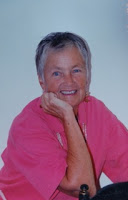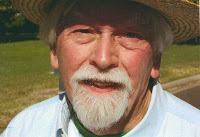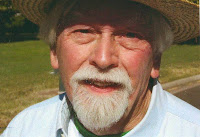Home is where the heart is and my heart has changed location many times. In my adult life that has been on the average every 10 years or so. I’ve noticed that the older I get the harder it is to move—to change my home. I guess we become less flexible in many ways as we age. This is a sad fact for the 3 million elderly Americans who are now living away from home in so called nursing homes because they can no longer take care of themselves. I’m sure that there is not a middle aged person or elder anywhere who does not pray everyday that he/she will not be one of those who must at some time live away from home. I certainly am one of those.
My first move was at the age of 15. I had to move with my parents, brother, and sister from New Jersey to Louisiana. That move in itself resulted in a huge culture shock but I was young and resilient and adjusted fairly easily. I spent three years of high school in small town Louisiana, assimilated quite easily into the culture, but I never felt in my heart that it was my home. Not so for my brother and sister who adopted the southern life style and called it home for the rest of their lives. After the three years of high school, I left the south never to return save for visits to my parents. I returned east to New York State to attend college.
After college I married a man, settled in Rochester, New York where my three children were born. We actually had a house in Scottsville, NY, a rural community near Rochester. All told, we lived in the area for six years. At the age of 20 something that seems like a long, long time. Then came the opportunity to live in a foreign country for a year. So we sold our house and moved to the Netherlands with the 3 children age 2-6. This was not a sad move as we knew from the beginning that Scottsville was a temporary situation, and besides, we were focused on our new adventure in a foreign country.
We ended up staying in Holland for 2 and 1/2 years—not 1 year as originally planned. We lived in three different apartments in the same place, the ancient city of Leiden. Needless to say, the Netherlands never felt like home—foreign language, foreign customs, unfamiliar food, clothes, etc. In spite of this and the joy of returning to the US, we were at loose ends upon our arrival back home in the US because my husband had to complete his deferred mandatory military service of two years and we knew not where that would be. We were truly homeless for a couple of months until he was assigned to Fort Derrick, Maryland, germ warfare center of the USA.
There we lived for two years—on an army post in Maryland—a place with a lifestyle almost as unfamiliar as the deep south or the Netherlands. Life was good at Ft. Derrick, but that place never felt like home either. I can imagine that military families who are jockeyed around frequently without much prior notification feel much the same. My guess is that for military families the post or base culture and lifestyle is their heart home regardless of where it is located.
Our move from Ft. Derrick and out of the army was to Denver. Our home in Park Hill was the first permanent-feeling home I had experienced in my adult life. We actually lived in the same house for almost fifteen years. Park Hill neighborhood, Denver, Colorado was my first heart home. A place I knew I would live for many years and potentially could live there the rest of my life. This, of course, would not come to pass because after 15 years in this home my life changed, my marriage ended, my children were grown and leaving home. This is when I came out as a lesbian. I continued to live in Park Hill in another house. After I met Gill and we decided to live together, we bought yet another house in the neighborhood together and lived there for 12 years. Park Hill had been my heart home for 40 years although I had lived in four different houses in the neighborhood during that time.
It rather reminded me of the backpacking trips in the Colorado mountains we took every summer for a number of years as our children were growing up. We knew we would not be sleeping in the same place more than one night. Every home we established on the journey was temporary, yet the mountain environment was our home away from home. Much the same as the many trips Gill and I took in our camper van. We would search for the perfect campsite and once found settled in and made it our home at least for a night or sometimes for several days and nights. In these cases, however, I think of our stopping place more as a nest rather than a home. The total mountain environment was our home when backpacking and moving on everyday. The van was our home when on the road trips, the campsite our nest.
A few years ago we decided to move to Lakewood. Park Hill was becoming too noisy and too young. I no longer had children in Denver, Gill had no ties to the neighborhood or the city of Denver. We had some friends living in an HOA community in Lakewood and we liked the area, so we started looking at a couple of the units for sale. Next thing we knew we were moving to Lakewood. I did not anticipate that I would feel away from home for the next few years. But I did, in spite of the fact that I liked our new home. Finally, though five years after our move I am well settled in there and love the quiet, peaceful, and friendly environment. It feels much more like home now.
Yet, Gill and I both spend a lot of time in Denver. Since I moved to Lakewood, one of my daughters moved from Baltimore to Denver. She is settled in a house in Park Hill—her heart home. Part of my heart is still there for sure. But Lakewood Green is my home now and it feels like home. I honestly do not think I have it in me to establish another home—at least not a heart home—a nest maybe, but not a heart home. One of my final supplications may well be that my last departure from my heart home be in a box. I do hope I will be one of the lucky ones and not ever be forced to move to a care facility away from home.
© 1 August 2015
About the Author
Betsy has been active in the GLBT community including PFLAG, the Denver Women’s Chorus, OLOC (Old Lesbians Organizing for Change), and the GLBT Community Center. She has been retired from the human services field for 20 years. Since her retirement, her major activities have included tennis, camping, traveling, teaching skiing as a volunteer instructor with the National Sports Center for the Disabled, reading, writing, and learning. Betsy came out as a lesbian after 25 years of marriage. She has a close relationship with her three children and four grandchildren. Betsy says her greatest and most meaningful enjoyment comes from sharing her life with her partner of 30 years, Gillian Edwards.









